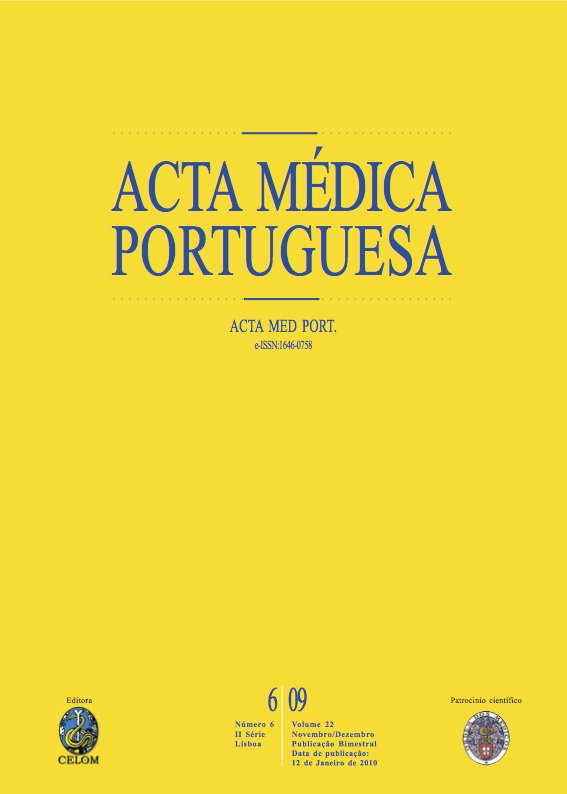Vasculite de grandes vasos em doente com febre de origem indeterminada.
DOI:
https://doi.org/10.20344/amp.1722Resumo
Fever of unknown origin (FUO) is a challenging diagnosis. Recently, 18F-fluorodeoxyglucose positron-emission tomography (FDG-PET) has emerged as an useful exam to its diagnosis. The authors present a case of a 64-years-old woman with an aortic mechanical valve that was admitted to the internal medicine department because of fever, weakness and weight loss of 2 months duration. Her physical examination was unremarkable. Laboratory findings showed microcytic anemia, no leukocytosis, and elevated C-reactive protein and erythrocyte sedimentation rate. Microbiology, immunology and imaging studies were normal. A FDG-PET was performed, which showed 18F-FDG uptake in aorta and its branches arterial wall. Treatment with corticosteroids was started with good response. This exam, although not sensitive for temporal arteritis when only smaller vessels are involved, permits the diagnosis of large vessel vasculitis with involvement of arteries that can not be biopsied.Downloads
Downloads
Como Citar
Edição
Secção
Licença
Todos os artigos publicados na AMP são de acesso aberto e cumprem os requisitos das agências de financiamento ou instituições académicas. Relativamente à utilização por terceiros a AMP rege-se pelos termos da licença Creative Commons ‘Atribuição – Uso Não-Comercial – (CC-BY-NC)’.
É da responsabilidade do autor obter permissão para reproduzir figuras, tabelas, etc., de outras publicações. Após a aceitação de um artigo, os autores serão convidados a preencher uma “Declaração de Responsabilidade Autoral e Partilha de Direitos de Autor “(http://www.actamedicaportuguesa.com/info/AMP-NormasPublicacao.pdf) e a “Declaração de Potenciais Conflitos de Interesse” (http://www.icmje.org/conflicts-of-interest) do ICMJE. Será enviado um e-mail ao autor correspondente, confirmando a receção do manuscrito.
Após a publicação, os autores ficam autorizados a disponibilizar os seus artigos em repositórios das suas instituições de origem, desde que mencionem sempre onde foram publicados e de acordo com a licença Creative Commons









